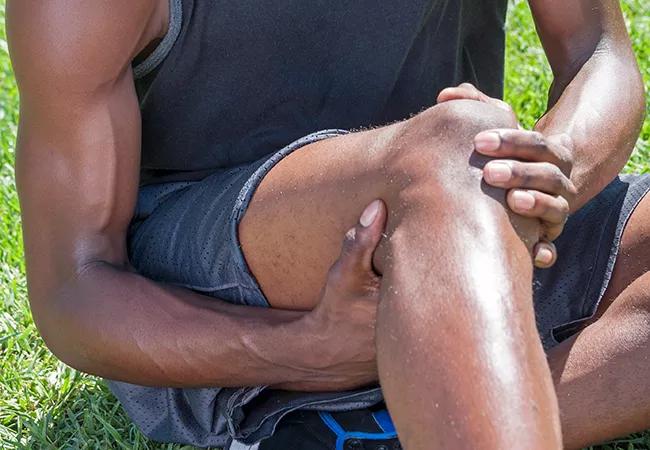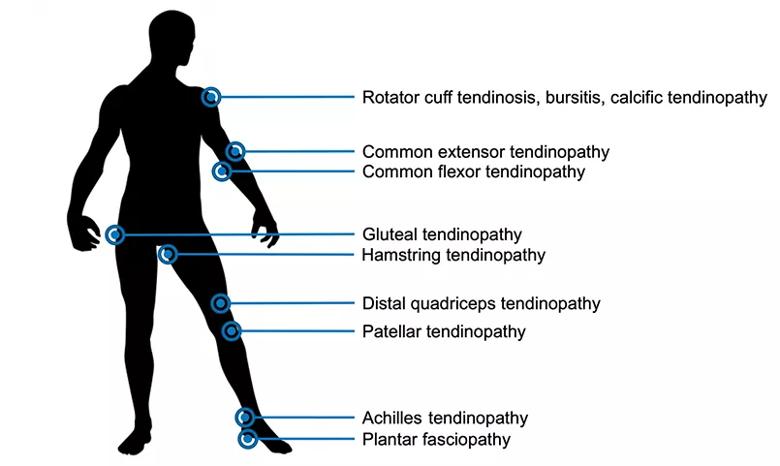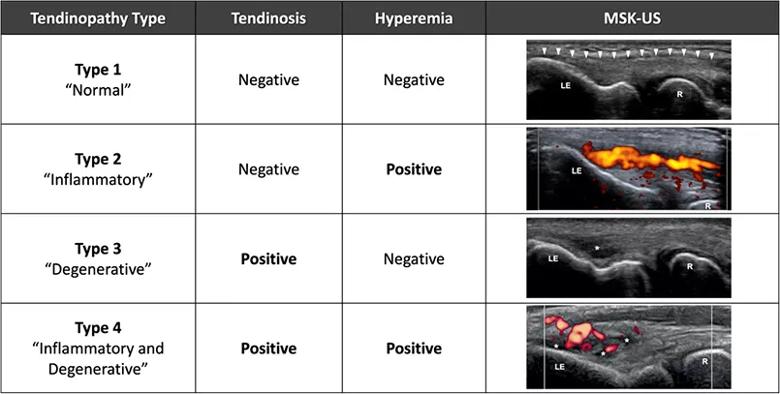New center will provide injections and hydroresection procedures

By Dominic King, DO, and Jason Genin, DO
Advertisement
Cleveland Clinic is a non-profit academic medical center. Advertising on our site helps support our mission. We do not endorse non-Cleveland Clinic products or services. Policy
Cleveland Clinic’s Department of Orthopaedic Surgery is staffed by a wide variety of providers who manage patients with acute and complex musculoskeletal injuries and conditions. Our orthopaedic surgeons deliver expert care through innovative and evidence-based treatments including arthroplasty. However, we also have providers who have an interest, passion and skillset in managing non-ruptured tendinopathies. These are our “interventional orthopaedists.”
The relationship between interventional orthopaedists and orthopaedic surgeons is similar to the relationship between interventional cardiologists and cardiothoracic surgeons. Interventional orthopaedics is a minimally invasive approach to treating chronic tendinopathy, including with ultrasound-guided injections, platelet-rich plasma injections, and minimally invasive tenotomy and hydroresection (TenJet) procedures.
Interventional orthopaedist Jason Genin, DO, was recently named Director of the Tendinopathy and Interventional Orthopaedic Center of Excellence (TIO CoE) within Cleveland Clinic’s Sports Medicine Center.
This center of excellence will lead efforts in coordinating the diagnosis and management of patients with non-ruptured acute and chronic tendinopathies (Figure).

Image content: This image is available to view online.
View image online (https://assets.clevelandclinic.org/transform/899f2bcf-fa4e-4912-b7d6-425f0d19954b/21-ORI-2413859-tendinopathy-figure-Inset1_jpg)
Figure. Areas of tendinopathy (common diagnoses seen in the Tendinopathy and Interventional Orthopaedics Center of Excellence).
It will provide patients and orthopaedic colleagues with:
Advertisement

Image content: This image is available to view online.
View image online (https://assets.clevelandclinic.org/transform/900da0f9-d3c9-4196-b661-45ef4c4467d9/21-ORI-2413859-tendinopathy-table-Inset2_jpg)
Table. Tendinopathy classification.
Now that a two-year TEAM pilot program has ended, a dedicated group of physicians and physical therapists has begun to develop care guidelines for many nonsurgical orthopaedic conditions. With continued collaboration, further research will help expand knowledge in the fields of orthobiologics, tendinopathy, musculoskeletal ultrasound and associated outcomes. Further research to validate these guidelines and expand the library of current guidelines is underway. We also will be adding more providers to the TIO CoE, with plans to expand services throughout Cleveland Clinic’s health system.
Dr. King is a sports medicine physician in the Department of Orthopaedic Surgery as well as Manager of Orthopaedic Informatics and Director of Clinical Transformation in the Orthopaedic & Rheumatologic Institute.
Dr. Genin is a sports medicine physician in the Department of Orthopaedic Surgery as well as Director of the Tendinopathy and Interventional Orthopaedics Center of Excellence.
Reference
Advertisement
Advertisement

How it’s similar but different from the direct anterior approach

Collaboration must cross borders and disciplines

Systematic review of MOON cohorts demonstrates a need for sex-specific rehab protocols

Should surgeons forgo posterior and lateral approaches?

How chiropractors can reduce unnecessary imaging, lower costs and ease the burden on primary care clinicians

Why shifting away from delayed repairs in high-risk athletes could prevent long-term instability and improve outcomes

Multidisciplinary care can make arthroplasty a safe option even for patients with low ejection fraction

Percutaneous stabilization can increase mobility without disrupting cancer treatment